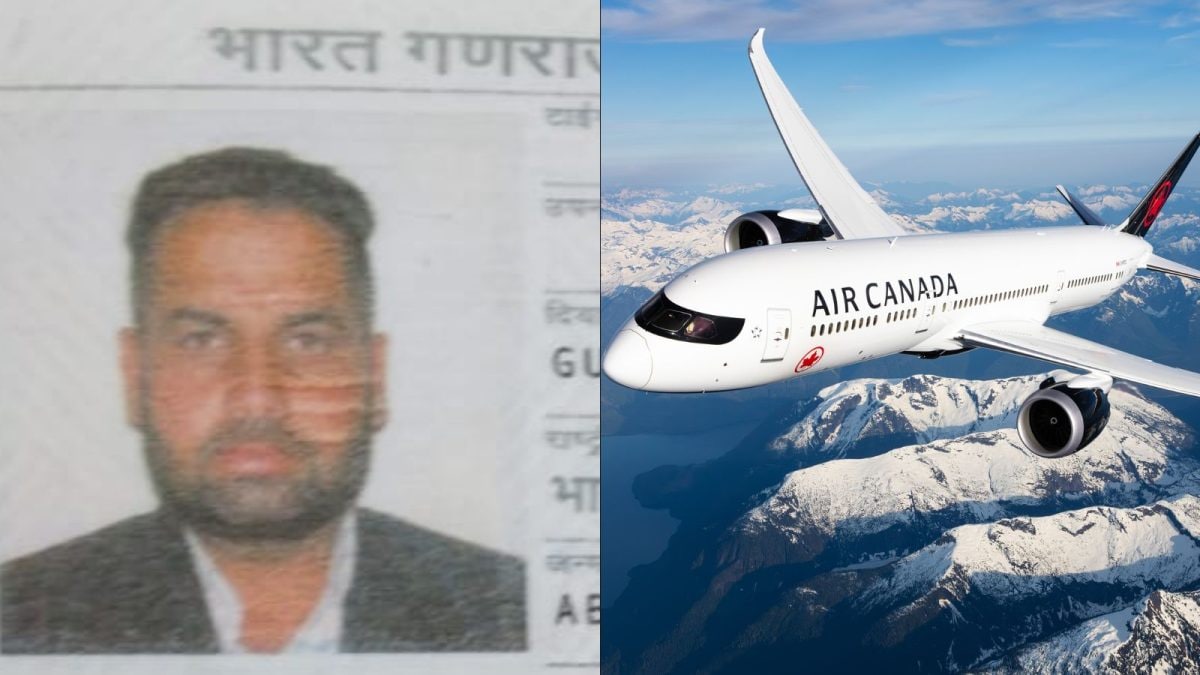Last Updated:
Gurjeet Singh, who served 24 years in the Indian Army, arrived in Vancouver on September 17, 2025, on a valid Canadian visitor visa to meet his son and extended family.

The Army veteran was shown fake propaganda material on Google, which alleged human rights violations by the Indian Army.
The detention and humiliation of Gurjeet Singh, a retired Havildar of the Indian Army’s Assam Rifles, by the Canada Border Services Agency (CBSA) has sparked outrage among the Indian-Canadian community.
Singh, who served 24 years in the Indian Army, arrived in Vancouver on September 17, 2025, on a valid Canadian visitor visa to meet his son and extended family. However, CBSA officers Mark Simpson and D’Costa detained him, accused his regiment of being a terrorist group, and subjected him to psychological abuse.
Recommended Stories
The Army veteran was shown fake propaganda material on Google, which alleged human rights violations by the Indian Army.
Despite his family offering a $10,000 bond, Singh was declared a “national security threat.” The CBSA further humiliated him by attempting to alter his military rank, pressuring him to call himself a “Junior Commissioned Officer” instead of a Havildar – a move seen as an insult to his dignity and to the Indian Army.
Singh also alleged racist behaviour by CBSA officials during his detention. His phone and baggage were seized at the airport.
On September 22, Singh was deported to India, choosing not to compromise the honour of his regiment by accepting false allegations. He said he was in regular touch with staff at the Indian Mission.
Speaking to CNN-News18, Gurjeet Singh’s brother Talwinder Singh said he had written to human rights organisations in Canada, explaining the treatment meted out to Gurjeet Singh.
He also alleged that his brother was not offered water for the first 45 minutes by CBSA, was handcuffed like a prisoner, and kept in a detention centre for five days.
Responding to a query from CNN-News18 on the incident, the CBSA said all persons seeking entry to Canada are examined by the agency and must demonstrate they meet the requirements for entry.
“If information comes to light that an individual who was granted entry to Canada may be inadmissible, the CBSA can initiate an investigation and take appropriate enforcement action. Enforcement action may include the arrest and detention of an inadmissible individual, as authorised under the Immigration and Refugee Protection Act (IRPA),” it said.
About the Author

Siddhant Mishra is a Senior Special Correspondent at CNN-News18, covering foreign affairs and international relations. With over 12 years of experience in journalism, he has also reported extensively on crime, …Read More
Siddhant Mishra is a Senior Special Correspondent at CNN-News18, covering foreign affairs and international relations. With over 12 years of experience in journalism, he has also reported extensively on crime, … Read More
Ottawa, Canada
September 26, 2025, 16:01 IST
Loading comments…
Read More



